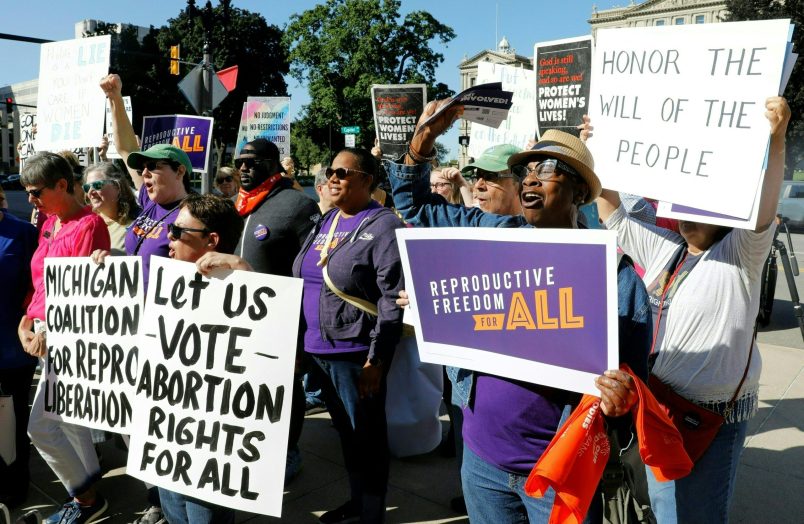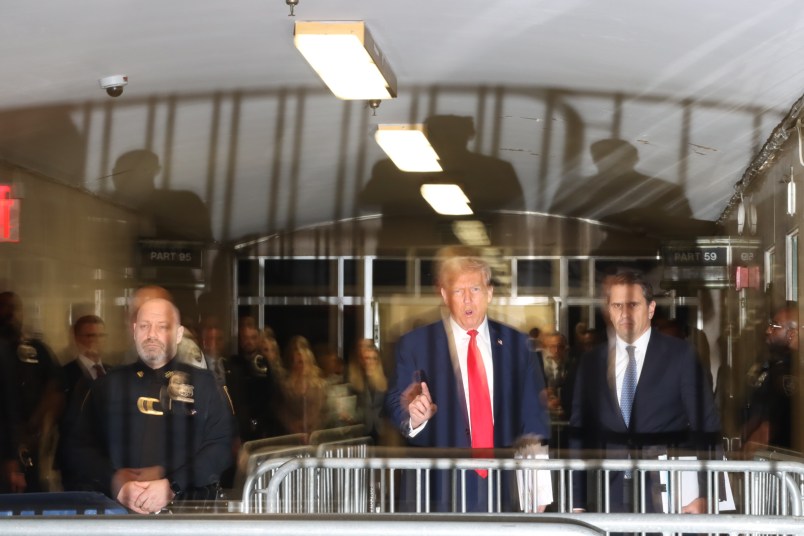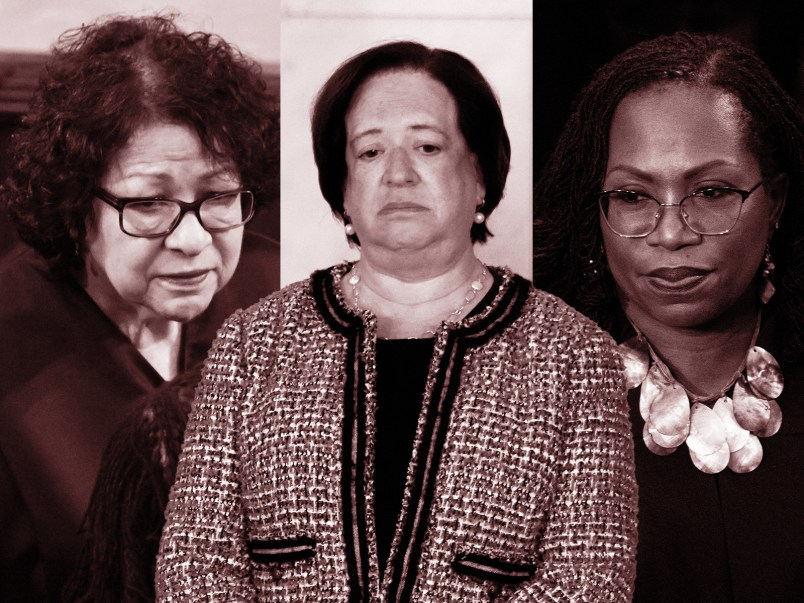A 5-2 majority of the Michigan Supreme Court ruled Thursday that a pro-choice amendment seeking to enshrine abortion rights in the Michigan constitution would appear on this November’s ballot, despite a challenge from anti-abortion activists that focused on the spacing between the printed words of the proposed amendment.
Michigan law requires only that ballot proposals be formatted in eight-point type, the court’s majority ruled — “regardless of the existence or extent of the spacing.”
“In this case, the meaning of the words has not changed by the alleged insufficient spacing between them,” the majority opinion added.
The abortion decision was a reversal from that of the Board of State Canvassers, where two Republicans refused to certify the proposed ballot measure based on the word-spacing challenge, deadlocking with the panel’s two Democrats and briefly dooming the pro-choice effort.
In one of two concurrences included in the decision, Chief Justice Bridget M. McCormack noted that a record number of Michiganders had signed petitions supporting the proposal, and that challengers hadn’t managed to find anyone who was confused by the word spacing on the amendment language.
“Yet two members of the Board of State Canvassers would prevent the people of Michigan from voting on the proposal because they believe that the decreased spacing makes the text no longer ‘[t]he full text,'” she wrote. “That is, even though there is no dispute that every word appears and appears legibly and in the correct order, and there is no evidence that anyone was confused about the text, two members of the Board of State Canvassers with the power to do so would keep the petition from the voters for what they purport to be a technical violation of the statute.”
“They would disenfranchise millions of Michiganders not because they believe the many thousands of Michiganders who signed the proposal were confused by it, but because they think they have identified a technicality that allows them to do so, a game of gotcha gone very bad,” the chief justice added. “What a sad marker of the times.”
In another 5-2 decision, the court’s majority also reversed the canvassing board’s deadlock on a ballot measure to expand voting rights in Michigan; that measure will now appear on the ballot as well.










